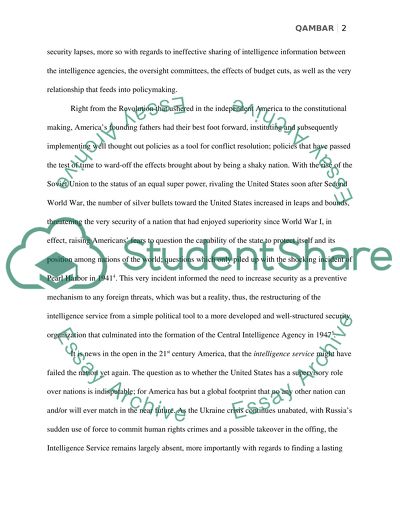Cite this document
(“The intelligence community Essay Example | Topics and Well Written Essays - 1500 words”, n.d.)
Retrieved from https://studentshare.org/sociology/1644600-the-intelligence-community
Retrieved from https://studentshare.org/sociology/1644600-the-intelligence-community
(The Intelligence Community Essay Example | Topics and Well Written Essays - 1500 Words)
https://studentshare.org/sociology/1644600-the-intelligence-community.
https://studentshare.org/sociology/1644600-the-intelligence-community.
“The Intelligence Community Essay Example | Topics and Well Written Essays - 1500 Words”, n.d. https://studentshare.org/sociology/1644600-the-intelligence-community.


